| Umělec 2003/1 >> One Ride to Zorilor | Просмотр всех номеров | ||||||||||||
|
|||||||||||||
One Ride to ZorilorUmělec 2003/101.01.2003 Jiří Havlíček | news | en cs |
|||||||||||||
|
Reportage from a study abroad stay in Romania
Where ever you look once, it is nearly the same. Nor can you change much. You once told someone similar stories, or you definitely already heard them somewhere before. This one’s about a little girl who’s always asking questions, but she only receives answers that apparently have nothing to do with the question, at least not in the standard meaning of the words. After some time the little girl is uncertain whether she understands nobody or nobody understands her, so she decides to leave the city. It’s her first time outside the city. She stands in the forest and suddenly has the feeling that she’s lost her hearing, because she hears nothing. It’s quiet. The story goes on, but how it ends I don’t know. It’s not a Romanian story, allegedly it’s a Dutch fairytale, but it’s not certain. We are in Cluj, where you meet quite a few dogs in the street. Some of them have their favorite places and you can greet them every day, others just wander through the city. They secretly spy on you, with carelessly hidden trust in their eyes, but usually they won’t take food from you, or from the locals. Their interest lies elsewhere. After careful encounters you are immediately more clear, and the original hesitation immediately changes into open friendship. The best is under the chin (scratching) and behind the ears (caressing) and even that bite (into the calf) you take at the end almost as an honor, as you should be grateful to someone. They accommodated us at one of the many housing estates, in a building with a wrecked ground floor and an unfinished facade. A bigger surprise awaited us inside. The attempt at western standards had not entirely worked out (the shower corner after two weeks had expanded into the whole bathroom, including the toilet), however the result was above average, even for our circumstances. Visiting the Academia de Arte Vizuale “Ioan Andreescu” was finally confirmed as being a good choice as we confronted the uncompromising esthetics of big black mounts, thoroughly advocated in the photo-video studio. Through assimilation (one such photograph we glued to the wall of our room), we rather successfully put up with this type of esthetics for our entire stay. Romanian architecture with its strange decorativeness and segmentation somewhat resembles sets from sci-fi films of the silent era. Dada-byzanc. In one place the housing estate even gradually transformed into a huge cemetery, with even the grave of Ana Pop, despite the fact that she is still alive and lives in the same house where I heard the story about the little girl, only in the next entrance, where you can easily get lost. I sat on the sofa, in a flat in the middle of this sci-fi town and listened. It resembled the flat of my grandmother from my father’s side. This similar panel building gloominess invisibly changing into coziness. Between the kitchen sink and table there were about thirty centimeters of space, enough to comfortably pass through (sideways). In the kitchen the window, with a perfect view to the panel building across the way, a slightly darker entrance hall, full of built-in cases to the ceiling and a smell that persistently evoked something round, yellowish, lacquered and flaking. A kind of madeleine in a cup of tea, according to Proust, whom we could not finish reading in Romania. This was not lost time, but I did not feel like looking for it. The theory that a bus ticket for 15,000 lei (for two rides, necessary to use both ends) is at the same time a ticket for two people to the local opera in the end proved wrong and probably too utopian. Buses looked similar to the French ones from the fifties (probably they really were French buses from the fifties), and as opposed to the local ones, had soft padded seats and wallpaper with a soft pattern on the ceiling. Such carefully maintained exhibits from the technical museum, not lacking an elegance and charm. They belonged among the favorite. You would not even meet the ticket inspector there that often, compared to those square wood-chip seats that you could ride, for example, to Zorilor.
01.01.2003
Рекомендуемые статьи
|
|||||||||||||
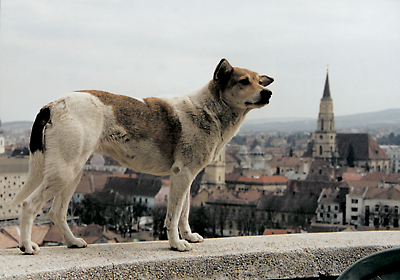
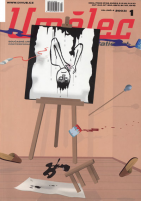



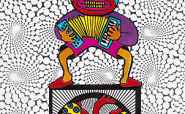
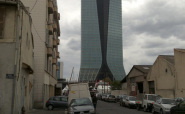

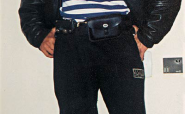
Комментарии
Статья не была прокомментированаДобавить новый комментарий